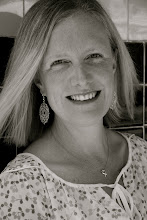
John and Elizabeth Liddell, the couple who bought our house in 1883, lived in a time when the average number of children per family in NSW was seven. I always wondered how many children Elizabeth gave birth to but was unsure of how to find out. Some nights, in the very early hours, when my youngest was a few months old, I'd sit on the stairs listening to him cry despite a tummy full of milk, and stare through the balustrade wondering if Elizabeth ever sat here on the same step, dizzy with lack of sleep.
Thankfully a friend’s father, with a flair for researching family history, came to my rescue and so the story of this house continues.
It seems John and Elizabeth were bang on average. There were seven little Liddells born between 1858 and 1878: Elizabeth, Caroline, Lydia, Ada, Emily, Alice and Henry.
Poor Elizabeth: 20 years of pregnancies, labour, breast feeding, sleepless nights and then, sadly, the death of two of those children.
She and John lost their eldest daughter, Elizabeth, in 1879 and their only son, Henry, in 1880. We were unable to discover why they died, but being only a year apart I can’t help but imagine it was an illness.
In 1887, the author of a report ‘The Wealth and Progress of NSW’, TA Coghlan wrote that in the late 1870s, 'Sydney was troubled by an extraordinary visitation of sickness; children died, stricken by diarrhoea and atrophy, pneumonia and bronchitis, diphtheria and scarlatina and measles. Its children were literally decimated.’
Two children from one family in one year – how many children from other families in our street might have died at the same time?
But it wasn’t just children who were at risk, obviously. Back then it was dangerous for women to give birth at all; particularly working-class women, like Elizabeth. In suburbs such as ours, the birth rate began to fall in the late 1800s and a Royal Commission was set up to uncover why. Not surprisingly, the working classes were stressed about the financial strain of providing for their families and apparently – I would have thought responsibly – resorted to birth control techniques.
The Commissioners felt the opposite: women were avoiding their ‘natural responsibilities’ and ‘putting their selfish desires before the nation’s need’. As the authors of the book, Leichhardt: on the Margins of the City write, ‘Two things couldn’t come quickly enough for many of these women: the change of life and an old age pension...’
I wonder how Elizabeth felt about motherhood? Did she attempt to avoid any of those pregnancies? Did she worry about feeding all those mouths? Or did she feel it was her role, as a woman, to give birth to as many children as she was able?
The mothers I have bumped into on the street, outside Elizabeth and my home, ask if I’m planning any more children. ‘Oh no,’ I say, ‘it was a huge decision for us to go from two to three.’
I ask them of their plans, ‘Two is enough,’ they may say, or ‘I’d love another one but I have to convince my husband first!’ Or, ‘if we had three we’d need to move to get a big backyard’; ‘I don’t have the patience for anymore’; ‘If money wasn’t an issue I’d have four.’
What would have Elizabeth’s conversations been like 130 years ago, standing in the exact same spot as I do talking to her neighbours? Very different, I’m sure.

5 comments:
It's always fascinating to read your posts related to your very special home.
Your line about sitting on the step nursing a child after their feed was truly poignant and I agree that it is a special connection back through the ages that you share with Elizabeth.
The names of her children are gorgeous one and all, but how terribly tragic to lose two children in the one year.
Seven is a mind boggling number indeed although my friend Naomi at http://www.sevencherubs.com/ proves that not only can it be done but it can be truly wonderful.
X Felicity
Thanks Felicity for your lovely comment!Yes, I keep thinking about little Henry and I can't even begin to fathom losing your oldest and youngest children so close together. I found out some other stories about the Liddells too, so will be posting them soon...! gx
Amazing research and am really looking forward to hearing more about the Liddells!
I love reading about your house Germaine and look forward to the next episodes.....!Fascinating and very sad at the same time.
Thanks Denise! Yes, it feels very close living here and being a mother... and having a two year old. And as you say, fascinating at the same time. Hopefully I'll come across a happier story soon! gx
Post a Comment